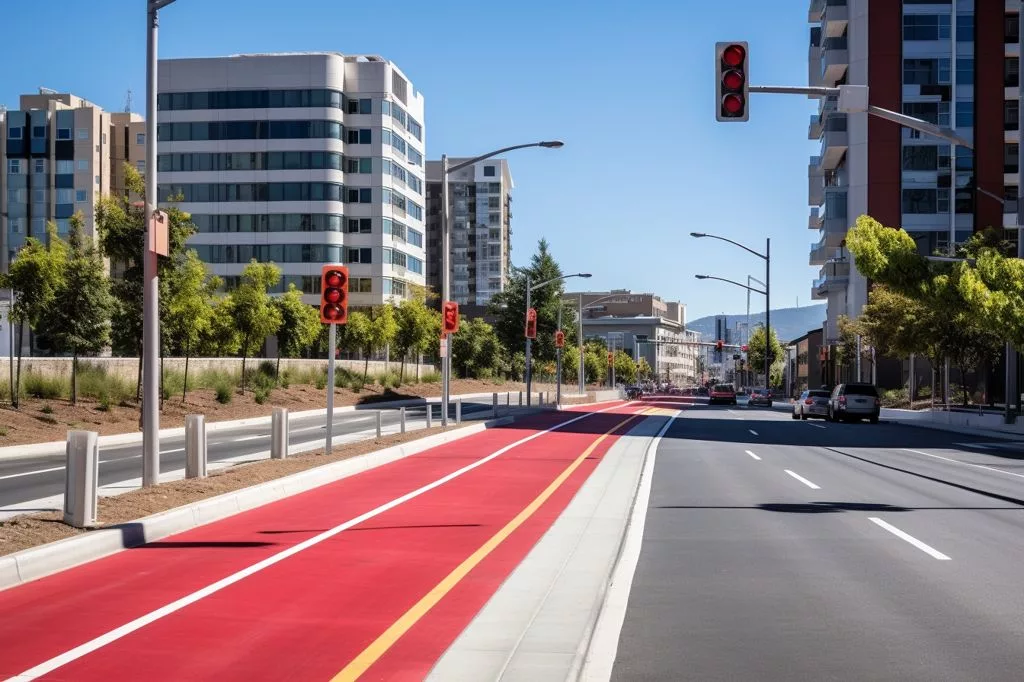Sure, here it is:
South Africa has unveiled its Tourism Sector Masterplan, which aims to boost the country’s tourism industry by creating jobs and increasing economic activity. The Masterplan encompasses seven strategic interventions such as establishing safe travel standards and encouraging regional integration, as well as growth enablers like e-visas and tourist safety. This framework reinforces the sector’s priority position in the country’s developmental goals and advocates for inclusive growth. The successful implementation of the Masterplan will depend on the commitment of all stakeholders to adopt an integrated approach in carrying out the identified strategic interventions and actions.
What is South Africa’s Tourism Sector Masterplan?
South Africa’s Tourism Sector Masterplan is a comprehensive framework that aims to boost economic activity and job creation in the tourism industry. The plan includes seven strategic interventions such as establishing safe travel standards and encouraging regional integration. It also identifies growth enablers like e-visas and tourist safety. The Masterplan reinforces the sector’s priority position in the country’s developmental goals and advocates for inclusive growth.
South Africa’s tourism sector stands at the threshold of a new era, as the Cabinet approves the Tourism Sector Masterplan. Minister of Tourism Patricia de Lille announced the gazetting of the Masterplan on October 13, 2023, highlighting its potential to generate opportunities for all segments of society, including women, youth, and people with disabilities.
Tourism is a vital aspect of the South African economy, due to its multiplier effect, labor-intensive nature, and far-reaching value chain. The industry has the capacity to create substantial employment opportunities and fosters an environment for Small, Micro, and Medium Enterprises (SMMEs) to flourish. Consequently, tourism has been recognized as one of the seven main sectors in South Africa’s Re-Imagining Industrial Strategy, approved by the Cabinet in 2019.
The Tourism Sector Masterplan, which developed from the Tourism Sector Recovery Plan (TSRP), reinforces the sector’s priority position in the country’s developmental goals. Minister de Lille was assigned to supervise this transformation by President Cyril Ramaphosa as part of her performance agreement. The Masterplan aspires to unite industry, labor, and government in pursuit of a common vision, pinpointing priorities and boosting economic activity and job creation.
Integrating Recovery and Strategy
During the transition from the TSRP to the Tourism Sector Masterplan, an inclusive approach was adopted. This encompassed assimilating all TSRP interventions and extending the implementation timeframe until the 2025/26 financial year. Additionally, the National Tourism Sector Strategy’s (NTSS) vision, mission, guiding principles, and values were integrated into the Masterplan.
The TSRP was conceived as a three-year cooperative effort involving key stakeholders from government, the private sector, and social partners. It aimed to alleviate the impacts of the COVID-19 pandemic on the tourism economy and establish a roadmap for recovery. The plan suggested various measures to safeguard and revive supply, reignite demand, and reinforce enabling capabilities within the industry.
In general, the TSRP detailed seven strategic interventions, supported by specific actions, to help the sector recover to pre-pandemic levels and position itself for long-term sustainable growth. These interventions have been adopted for the Masterplan and are in line with the Economic Reconstruction and Recovery Plan (ERRP). They concentrate on areas such as job creation, infrastructure investment, green economy or sustainability interventions, inclusion of women and youth, and skills development.
Key Interventions and Enablers for Growth
The Tourism Sector Masterplan encompasses seven strategic interventions:
- Establishing norms and standards for safe operations across the value chain to facilitate safe travel and restore traveler confidence.
- Encouraging domestic demand through targeted initiatives and campaigns.
- Bolstering the supply side through resource mobilization and investment facilitation.
- Supporting the preservation of core tourism infrastructure and assets.
- Implementing a global marketing program to rekindle international demand.
- Encouraging tourism regional integration.
- Developing an enabling policy environment to offer enhanced support for sector growth and development.
Alongside these strategic interventions, the Masterplan identifies several growth enablers, which depend on the collaboration between government, industry, and other departments. These enablers comprise improved travel facilitation through e-visas, tourist safety, airlift capacity, expedited processing of tour operator licenses, and stimulating domestic demand through government consumption expenditure.
A Collaborative Path Forward
The Department of Tourism will maintain its cooperation with responsible departments and stakeholders to ensure the implementation of activities connected to these enablers. Minister de Lille emphasized that the successful execution and resourcing of the Masterplan hinge on the commitment of all stakeholders to adopt an integrated approach in carrying out the identified strategic interventions and actions.
The Tourism Sector Masterplan signifies the start of an exhilarating journey for South Africa’s tourism sector. With a comprehensive framework that advocates inclusive growth, the Masterplan harbors immense potential for the future of the industry, the national economy, and the lives of countless South Africans who stand to benefit from its successful implementation.
1. What is South Africa’s Tourism Sector Masterplan?
South Africa’s Tourism Sector Masterplan is a comprehensive framework that aims to boost economic activity and job creation in the tourism industry. The plan includes seven strategic interventions such as establishing safe travel standards and encouraging regional integration. It also identifies growth enablers like e-visas and tourist safety. The Masterplan reinforces the sector’s priority position in the country’s developmental goals and advocates for inclusive growth.
2. Why is tourism important for the South African economy?
Tourism is a vital aspect of the South African economy due to its multiplier effect, labor-intensive nature, and far-reaching value chain. The industry has the capacity to create substantial employment opportunities and fosters an environment for Small, Micro, and Medium Enterprises (SMMEs) to flourish. Consequently, tourism has been recognized as one of the seven main sectors in South Africa’s Re-Imagining Industrial Strategy, approved by the Cabinet in 2019.
3. What is the role of the Tourism Sector Masterplan in the country’s developmental goals?
The Tourism Sector Masterplan reinforces the sector’s priority position in the country’s developmental goals. It aims to unite industry, labor, and government in pursuit of a common vision, pinpointing priorities, and boosting economic activity and job creation.
4. How was the integration of the Tourism Sector Recovery Plan (TSRP) into the Masterplan carried out?
During the transition from the TSRP to the Tourism Sector Masterplan, an inclusive approach was adopted. This encompassed assimilating all TSRP interventions and extending the implementation timeframe until the 2025/26 financial year. Additionally, the National Tourism Sector Strategy’s (NTSS) vision, mission, guiding principles, and values were integrated into the Masterplan.
5. What are the seven strategic interventions included in the Tourism Sector Masterplan?
The Tourism Sector Masterplan encompasses seven strategic interventions:
1. Establishing norms and standards for safe operations across the value chain to facilitate safe travel and restore traveler confidence.
2. Encouraging domestic demand through targeted initiatives and campaigns.
3. Bolstering the supply side through resource mobilization and investment facilitation.
4. Supporting the preservation of core tourism infrastructure and assets.
5. Implementing a global marketing program to rekindle international demand.
6. Encouraging tourism regional integration.
7. Developing an enabling policy environment to offer enhanced support for sector growth and development.
6. What are the growth enablers identified in the Tourism Sector Masterplan?
Alongside these strategic interventions, the Masterplan identifies several growth enablers, which depend on the collaboration between government, industry, and other departments. These enablers comprise improved travel facilitation through e-visas, tourist safety, airlift capacity, expedited processing of tour operator licenses, and stimulating domestic demand through government consumption expenditure.
7. How will the Department of Tourism collaborate with responsible departments and stakeholders to ensure the implementation of the growth enablers?
The Department of Tourism will maintain its cooperation with responsible departments and stakeholders to ensure the implementation of activities connected to these enablers.
8. What is the key to the successful execution and resourcing of the Tourism Sector Masterplan?
Minister de Lille emphasized that the successful execution and resourcing of the Masterplan hinge on the commitment of all stakeholders to adopt an integrated approach in carrying out the identified strategic interventions and actions.








